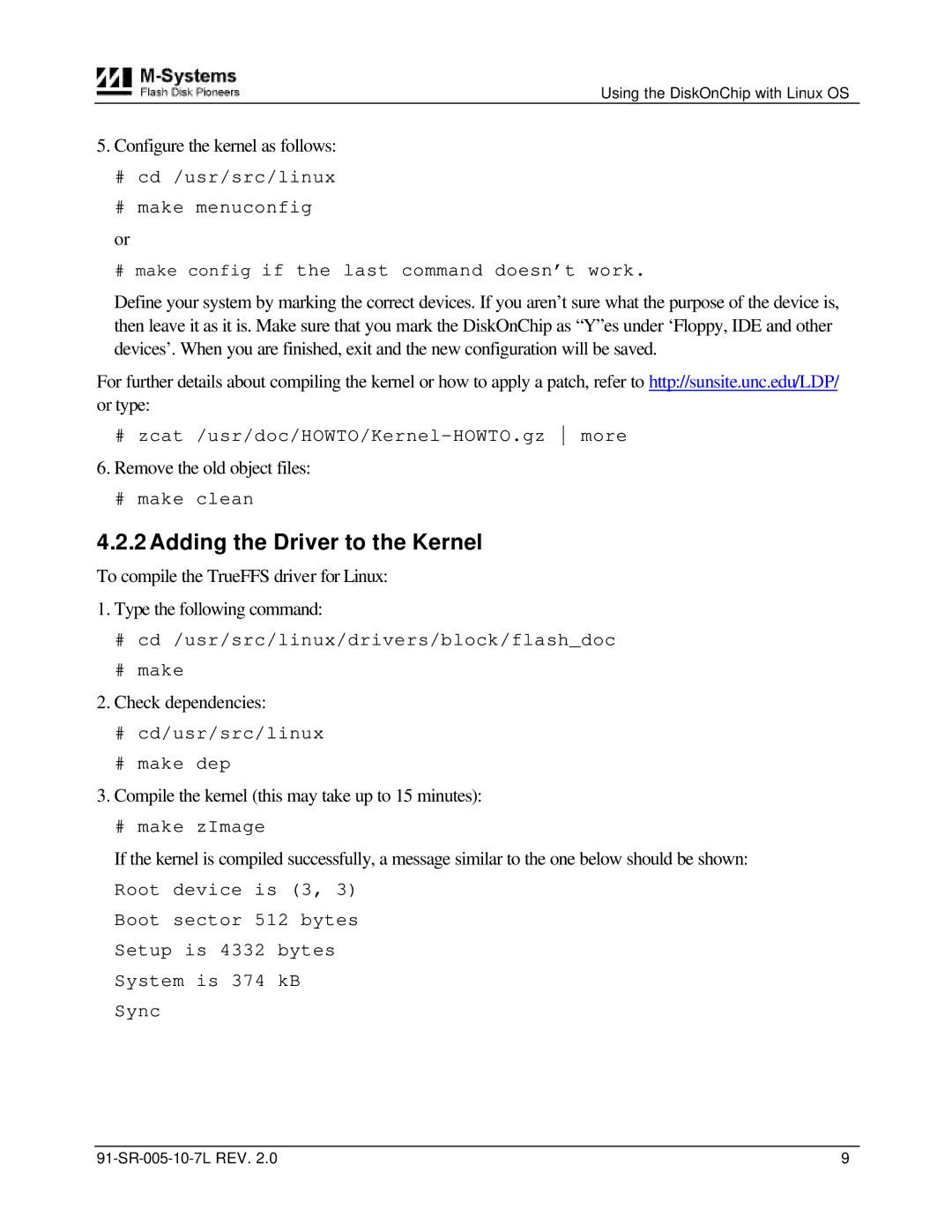
Using the DiskOnChip with Linux OS
5.Configure the kernel as follows:
#cd /usr/src/linux
#make menuconfig
or
#make config if the last command doesn’t work.
Define your system by marking the correct devices. If you aren’t sure what the purpose of the device is, then leave it as it is. Make sure that you mark the DiskOnChip as “Y”es under ‘Floppy, IDE and other devices’. When you are finished, exit and the new configuration will be saved.
For further details about compiling the kernel or how to apply a patch, refer to http://sunsite.unc.edu/LDP/ or type:
#
6.Remove the old object files:
#make clean
4.2.2 Adding the Driver to the Kernel
To compile the TrueFFS driver for Linux:
1.Type the following command:
#cd /usr/src/linux/drivers/block/flash_doc
#make
2.Check dependencies:
#cd/usr/src/linux
#make dep
3.Compile the kernel (this may take up to 15 minutes):
#make zImage
If the kernel is compiled successfully, a message similar to the one below should be shown:
Root device is (3, 3)
Boot sector 512 bytes
Setup is 4332 bytes
System is 374 kB
Sync
9 |
